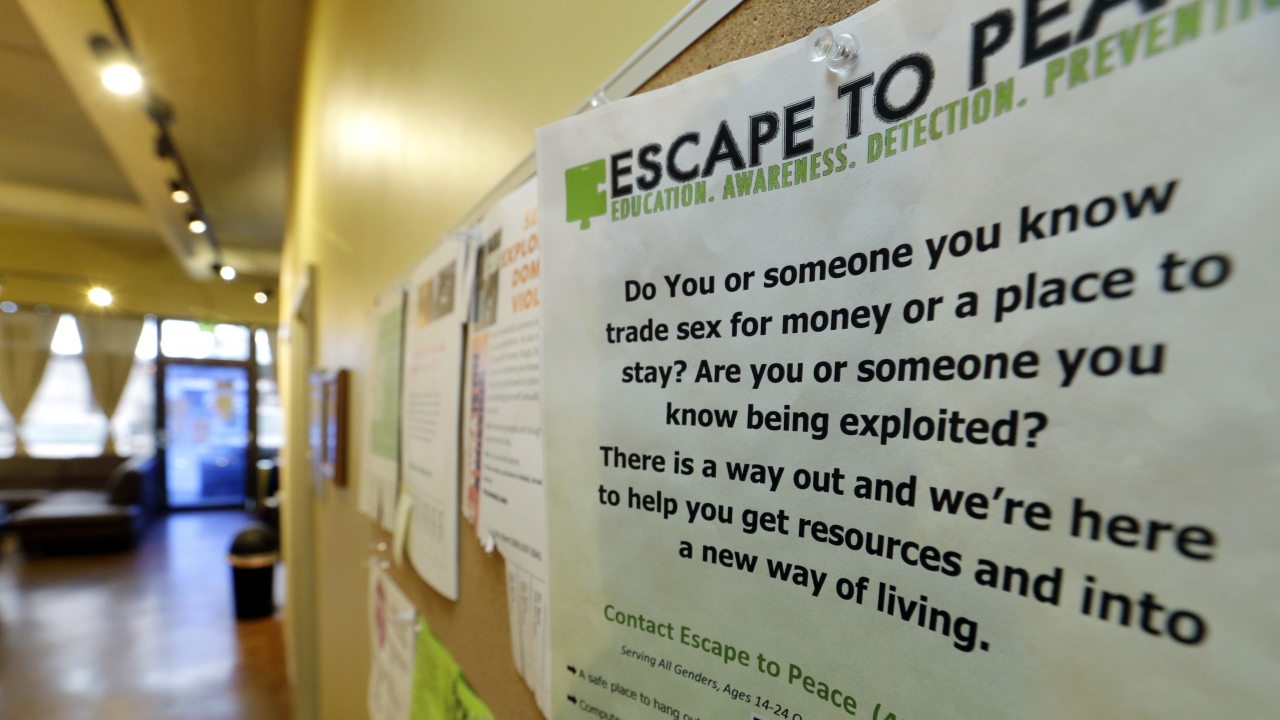There are roughly 30 million people being trafficked at any time, according to a study by the International Labor Organization, and that number is up 12% since 2016.
Human trafficking is happening all over the world, including in central Texas. But one local group called Jesus Said Love is working to put an end to it in the area.
Emily Mills founded the Waco-based group in 2003.
"We'd go into the clubs to the women who were on the front lines of selling sex to customers and we would engage them with simple gift bags," she said. "Our job was never to fix, control or save, but simply live out the reality that we are all loved."
What started as simply spreading love led to finding something much more serious.
"What we encountered was this reality that some women who were there, their money was being controlled by a third party," Mills said. "Their boyfriend was demanding they work at the club in order to have a place to sleep at night."
The U.S. Department of Homeland Security defines human trafficking as the use of force, fraud or coercion to obtain some type of labor or commercial sex act. It was a situation many of the women Mills encountered were facing.
"What we didn't know then that we know now is that we'd be fighting the issues such as human trafficking, prostitution and all of the things attached to those issues," Mills said.
"It's definitely something people need to be mindful of because it does happen, and it happens in our area as well," Kim Clark with the Texas Department of Family and Protective Services said.
Each situation can look different, and it's not always how one would expect. Movies, for example, often depict trafficking as children being kidnapped and sold by strangers.
But according to information by the Human Trafficking Hotline, nearly 90% of victims are recruited by people they know: 33% are trafficked by family members, 28% by an intimate partner and 22% by an employer.
It's estimated roughly 22% of labor trafficking victims are female, and 48% are male.
Sex trafficking victims are 79% female and about 7% are male. Of that, at least 30% are estimated to first be exploited as a minor.
The Human Trafficking Hotline found Texas has the ninth-highest rate of trafficking in the country.
"We see it in every community, every socioeconomic bracket," said Mark Wilson with Texas Department of Family and Protective Services. "No one is immune, and everyone has to keep their eyes open because that's the only way we're going to get ahead of this."
While anyone can fall victim to trafficking, people without a strong support system around them are among the most vulnerable.
"The thing I am struck by over and over again in this work is the matter of that personal relationship," Mills said. "Anyone who doesn't have that healthy attached safe family of origin is going to be more at risk. However, you can have a perfect kid making perfect straight As on the swim team, and if they don't feel attached to their well-off family, they can be lured away easily as well."
Groups like Jesus Said Love and their company Lovely are aimed at helping survivors of human trafficking get back on their feet.
"This building is really an opportunity to our access program, which is job training," Mills said. "Lovely provides livable wage jobs and gives micro-loans to survivors. Then we provide long-term direct services to survivors that we meet."
Mills said while they can help people rebuild their lives, it's on everyone to help put an end to trafficking in the Waco area.
"I think that we learned early on that we weren't going to solve the issue of human trafficking, sex buying, prostitution; we weren't going to solve that on our own," Mills said.
There are a few signs to look for if you suspect someone might be a victim of human trafficking. That includes not having control over their own money, young people spending a lot of time with older men, unexplained cuts and bruises, and tattoos or branding of ownership.
If you or someone you know is a victim of human trafficking, contact the National Human Trafficking Hotline.
Text: 233733 | Call: 888-373-7888 | Chat: humantraffickinghotline.org







